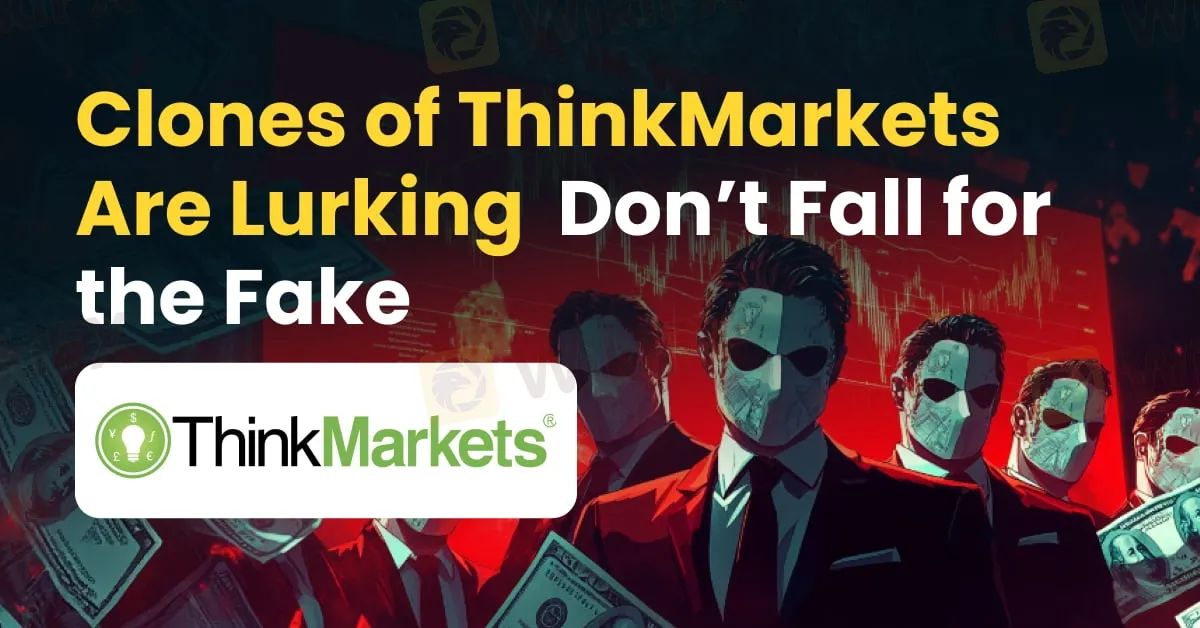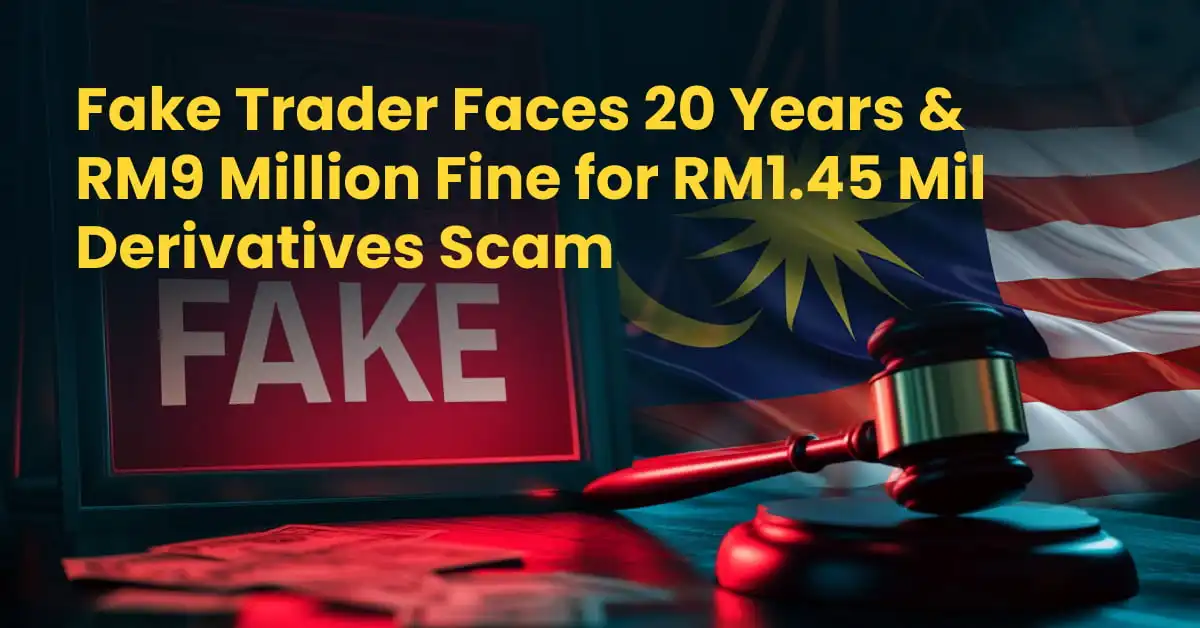简体中文
繁體中文
English
Pусский
日本語
ภาษาไทย
Tiếng Việt
Bahasa Indonesia
Español
हिन्दी
Filippiiniläinen
Français
Deutsch
Português
Türkçe
한국어
العربية
Clones of ThinkMarkets Are Lurking | Don’t Fall for the Fake
Abstract:A silent threat is creeping through the online trading world, and even the most experienced traders may not realise they’re walking straight into it. Several clones of ThinkMarkets, one of the industry’s most trusted brokers, are now circulating online, posing a serious risk to anyone trading on what they think is a legitimate platform.

A silent threat is creeping through the online trading world, and even the most experienced traders may not realise they‘re walking straight into it. Several clones of ThinkMarkets, one of the industry’s most trusted brokers, are now circulating online, posing a serious risk to anyone trading on what they think is a legitimate platform.
These counterfeit websites are nearly indistinguishable from the real thing. With expertly copied branding, design, and layout, they create an illusion of legitimacy that‘s easy to fall for. For example, domains might include typographical errors such as replacing “markets” with “markes” or using slightly altered web addresses that are easy to overlook. Such tactics are designed to trick users into believing they are dealing with a legitimate trading platform. But behind the convincing facade lies a calculated scheme aimed at stealing traders’ funds and sensitive data.

Once users land on these fake sites, scammers typically employ aggressive strategies to extract money. Common signs of fraud include urgent payment requests, false claims of refundable deposits, and fabricated reasons to block account access, such as requiring fees to process withdrawals or unfreeze funds. These ploys are all hallmarks of a scam and have no connection to how legitimate brokers operate.
While these cloned platforms may look nearly identical to the original, they are set up solely to exploit traders by gaining access to their funds and sensitive information. The goal is often to build trust quickly and push the user into making a financial transaction, usually under the illusion of urgency or recovery of lost access.
The growing number of these impersonator sites highlights a broader issue facing online traders: cybercriminals are adapting quickly, using real brand reputations to add legitimacy to their schemes. ThinkMarkets, as a well-established name in the industry, has become a prime target for this type of fraudulent replication.
What makes these scams particularly dangerous is how convincingly they mirror the real platform. A slight oversight, such as a misspelled URL or a link sent by an unverified source, can lead traders directly into the hands of these imposters. With online trading continuing to grow in popularity, the need for vigilance is more important than ever.
To prevent falling victim to fraudulent sites, using tools like WikiFX can be a game-changer. WikiFX provides detailed information on brokers, including regulatory status, customer reviews, and safety ratings, allowing users to verify the legitimacy of any investment platform before committing their money. With access to in-depth insights and risk alerts, WikiFX equips potential investors with the resources to make informed decisions and avoid unauthorised or unlicensed entities. By checking with WikiFX, users can confidently protect their savings and avoid the costly traps set by unscrupulous investment syndicates.

Disclaimer:
The views in this article only represent the author's personal views, and do not constitute investment advice on this platform. This platform does not guarantee the accuracy, completeness and timeliness of the information in the article, and will not be liable for any loss caused by the use of or reliance on the information in the article.
Read more

What Is Indices in Forex? A Beginner’s Guide to Trading Forex Indices
Understand what indices in forex are, how DXY works, key differences vs pairs, pros/cons, and where to trade CFDs—beginner-friendly, expert-backed guide.

Malaysian Finfluencers Could Face RM10 Million Fine or 10 Years in Prison!
A new regulatory measure by the Securities Commission Malaysia (SC) is set to change the country’s online trading and financial influencer landscape. Starting 1 November 2025, any trader or influencer caught promoting an unlicensed broker could face a fine of up to RM10 million, a prison sentence of up to 10 years, or both.

Juno Markets: A Closer Look at Its Licenses
When selecting a broker, understanding its regulatory standing is an important part of assessing overall reliability. For traders seeking to protect their capital, ensuring that a platform operates under recognised and stringent oversight can make all the difference. Keep reading to learn more about Juno Markets and its licenses.

Fake Trader Faces 20 Years & RM9 Million Fine for RM1.45 Mil Derivatives Scam
A Malaysian man who posed as a ‘licensed’ futures trader has been handed a 20-year prison sentence and a RM9 million fine after admitting to running a fraudulent derivatives investment scam.
WikiFX Broker
Latest News
Join WikiFX’s Agent Growth Event | Turn Your Success into a Global Achievement
Do Kwon Faces 130-Year Prison Sentence After Guilty Plea in $40B Crypto Collapse
Best 5 Low-Spread FX Brokers in India 2025
SEC Settles California Trader with Over $234,000 Spoofing Scheme
Major Pairs in Forex: Top Traded Currency Insights
Forex Trends Explained for Your Successful Trading Experience
What is ECN in Trading? A Simple Guide
Scam Alert: Know the Risky Side of InstaForex in India
Going to Invest in FXCL? Move Back to Avoid Scams & Losses
What Is Forex Trading Fee? A Beginner’s Guide
Currency Calculator


